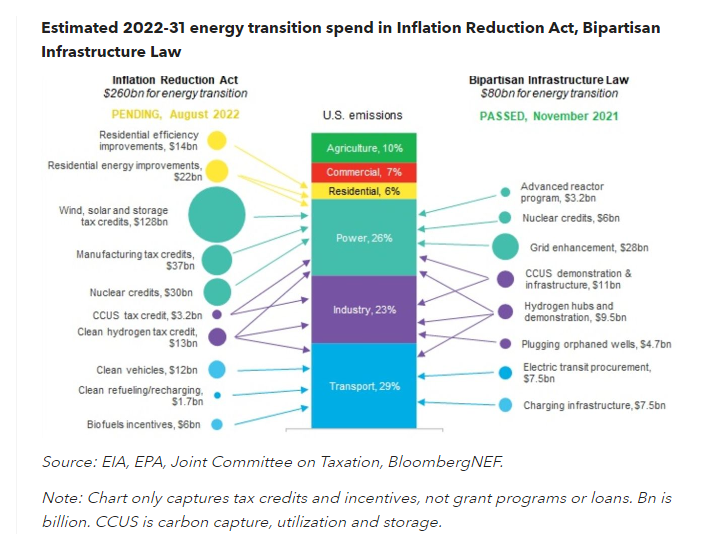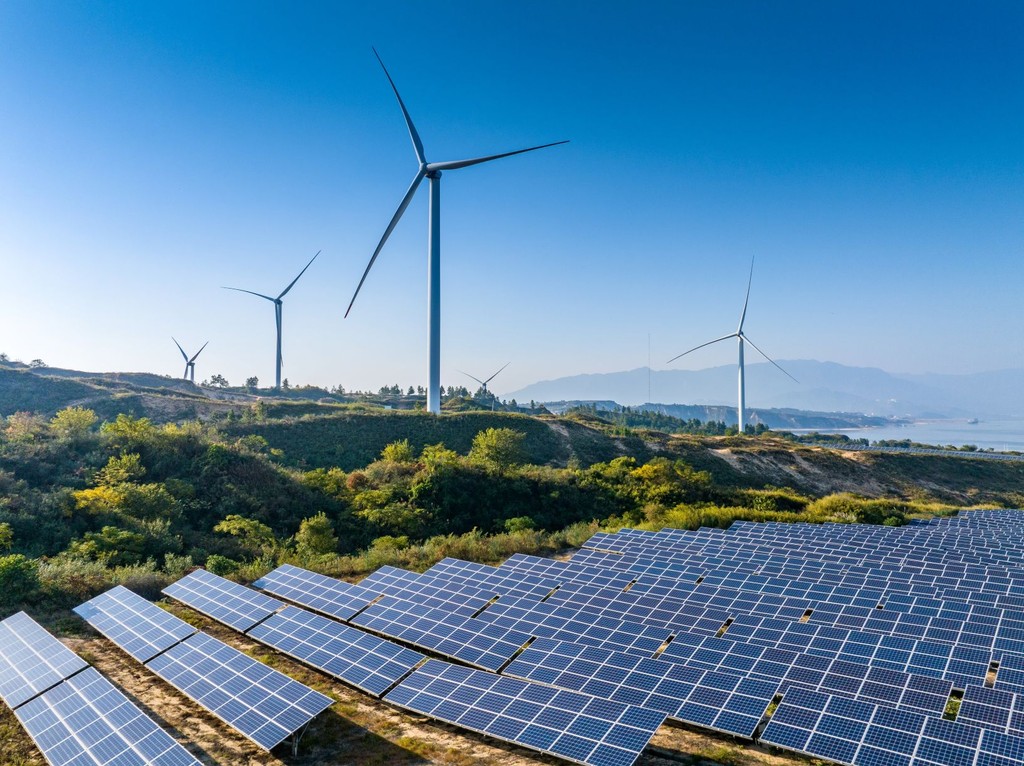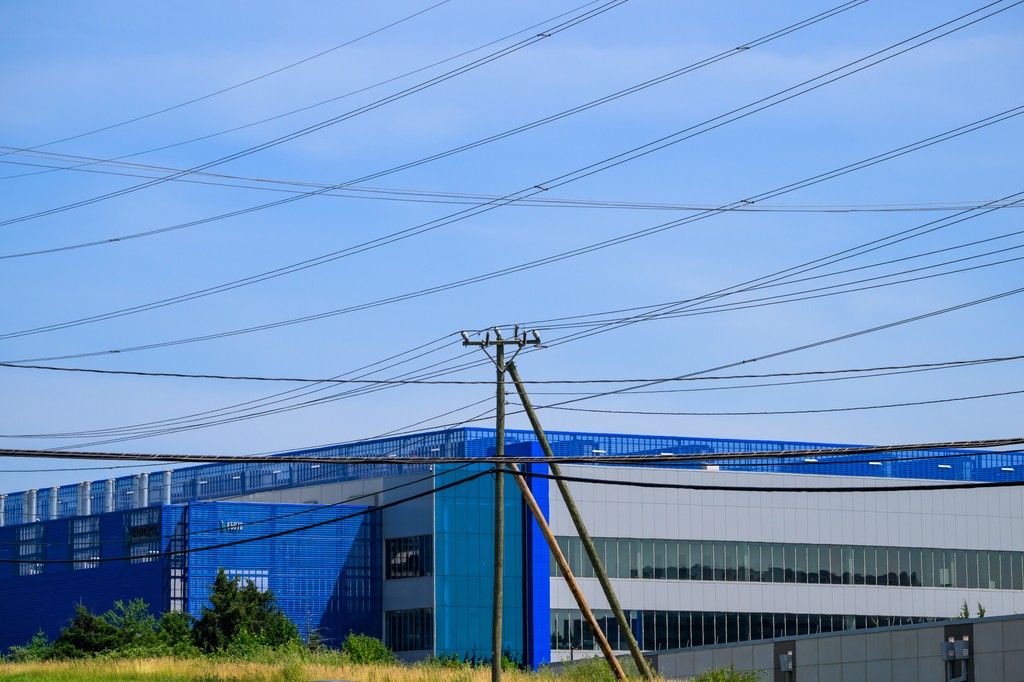The passage of landmark climate legislation in the US through the Inflation Reduction Act marks a stunning turnaround for climate advocates, policymakers and other stakeholders mere weeks after legislation appeared dead. The bill would inject at least $369 billion into the US clean energy economy – with a good chunk going to the power sector, and to electric vehicles.


- The Inflation Reduction Act passed the US Senate by a vote of 50-50, with Vice President Kamala Harris serving as the tiebreaker. It offers tax credits (accounting for around $260 billion), grants, loans and supporting policies for mature sectors, such as solar, wind and nuclear. It also incentivizes newer technologies like hydrogen and CCUS, though at a smaller scale.
- Congress has attempted comprehensive climate legislation for almost three decades, including carbon pricing. This time, leading Democrats jettisoned policy approaches relying on the “stick” and offered “carrots” to turbocharge clean energy technology deployment.
- The new bill represents unprecedented US commitment on climate. It offers nearly four times as much funding for clean energy as the 2009 Recovery Act. Since equipment costs for climate solutions have fallen rapidly since then, the impact of this new bill should be more then four time greater.






